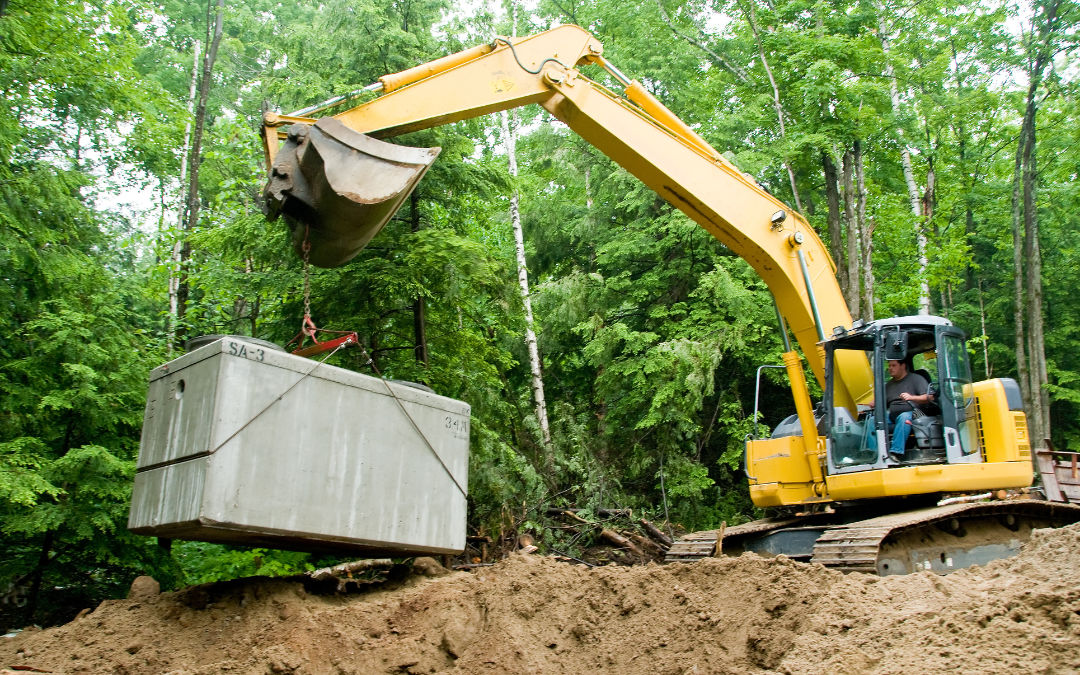This article explores how eco-friendly equipment and materials are transforming construction sitework Michigan, focusing on Michigan mass grading and other sitework processes.

What is Sitework in Michigan?
Before any construction project begins, sitework is necessary to prepare the land. Sitework Michigan includes tasks like land clearing, grading, drainage installation, and excavation. These actions guarantee the land is stable and ready for construction.
Key elements of construction sitework Michigan:
- Excavation: Removing dirt and rocks to create a solid foundation.
- Grading: Leveling the land for drainage and stability.
- Utility Installation: Placing underground pipes, cables, and drainage systems.
- Land Clearing: Removing trees, debris, and obstacles from the site.
Heavy machinery and materials that are bad for the environment are used in traditional site work. However new eco-friendly technologies are changing how construction companies do these things.
Eco-Friendly Equipment in Sitework
The use of green construction equipment is growing in Michigan mass grading and sitework projects. Businesses are switching to machines that use less fuel, put out less pollution, and work better.
1. Electric and Hybrid Construction Vehicles
Electric excavators, bulldozers, and loaders are now available for construction sitework Michigan. These machines:
- Reduce fuel consumption, lowering overall costs.
- Lessen the amount of greenhouse gases you release into the air.
- Reduce noise pollution in residential areas by operating more silently.
Hybrid construction vehicles, which use both diesel and electric power, provide a balance of power and sustainability.
2. Fuel-Efficient Machinery
Modern equipment is designed to use fuel more efficiently, reducing waste and emissions. Things like automatic idle control and fuel monitoring systems save energy.
3. Smart Construction Technology
Innovations like GPS-guided grading systems and automated machinery improve precision, reducing fuel use and material waste. These systems allow for more accurate site preparation, minimizing errors and rework.
Sustainable Materials for Michigan Sitework
For green construction sitework Michigan, you need to use materials that are good for the environment. Concrete and asphalt, which are common building materials, leave behind large amounts of carbon dioxide. However sustainable alternatives can have less of an effect on the environment while still being strong and long-lasting.
1. Recycled Aggregates
Commonly used in Michigan mass grading are recycled aggregates, created from crushed concrete and recovered asphalt. These resources:
- Reduce the need for new raw materials.
- Prevent construction waste from ending up in landfills.
- Lower transportation emissions by sourcing materials locally.
2. Alternative Concrete Solutions
The production of concrete emits a lot of CO₂. New eco-friendly concrete choices are:
- Fly ash concrete (produced from coal combustion byproducts).
- Slag cement (recycled steel industry waste).
- Hempcrete (a natural, breathable alternative for insulation).
3. Permeable Paving Materials
Permeable concrete and asphalt allow water to seep through, reducing stormwater runoff. These resources enhance groundwater recharge and help to stop flooding.
4. Sustainable Timber and Composite Materials
For projects that require wood, sustainably sourced timber and recycled composite materials are excellent choices. These alternatives protect forests while providing strong and durable structures.
Benefits of Green Sitework in Michigan
Changing to environmentally friendly sitework Michigan offers several benefits for companies and the environment.
1. Environmental Benefits
- Lower Carbon Emissions: Electric and hybrid equipment significantly reduce greenhouse gas output.
- Less Landfill Waste: Recycled materials keep construction debris out of waste sites.
- Improved Air and Water Quality: Improved drainage solutions and sustainable materials help to preserve Michigan’s natural resources.
2. Cost Savings
- Lower Fuel Costs: Electric and hybrid machines reduce reliance on expensive fossil fuels.
- Reduced Material Expenses: Using recycled materials lowers purchasing costs.
- Long-Term Savings: Sustainable buildings require less maintenance and last longer.
3. Compliance with Regulations
Michigan is enforcing stricter environmental regulations for construction projects. Using green sitework methods helps businesses stay compliant and avoid fines. Many government contracts now require eco-friendly practices, giving sustainable companies a competitive edge.
Challenges and the Future of Eco-Friendly Sitework
Eco-friendly sitework has a lot of benefits, but it can be hard to do at times.
1. High Initial Costs
- Electric and hybrid equipment can be more expensive than traditional machines.
- Sustainable materials sometimes cost more upfront.
- However, these investments often pay off over time through fuel savings and lower maintenance costs.
2. Limited Availability of Equipment and Materials
- Some eco-friendly technologies are still emerging, meaning availability can be limited.
- Contractors may need to make plans and get materials ahead of time.
3. Need for Skilled Workers
- Using advanced smart construction technology requires training.
- Firms need to spend money on training to assist employees in adapting to new environmentally friendly methods.
Despite these challenges, the future of green sitework looks promising. As technology advances, eco-friendly solutions will become more affordable and accessible. In Michigan, many construction companies are already using environmentally friendly methods on the job site. This is making the future cleaner and greener.
Conclusion
Eco-friendly equipment and materials are revolutionizing Michigan sitework. In the shift toward sustainable construction, Michigan sitework is helping reduce emissions, lower costs, and protect the environment.
By investing in hybrid and electric equipment, using recycled materials, and implementing smart technology, contractors can complete Michigan mass grading and other sitework projects with minimal environmental impact.
As long as Michigan’s green building rules are followed, using eco-friendly methods will not only help the environment but also give businesses an edge in the growing sustainable construction market.
Are you planning a sitework project in Michigan? Contact us to learn more about eco-friendly solutions and build a better future for the next generation!


